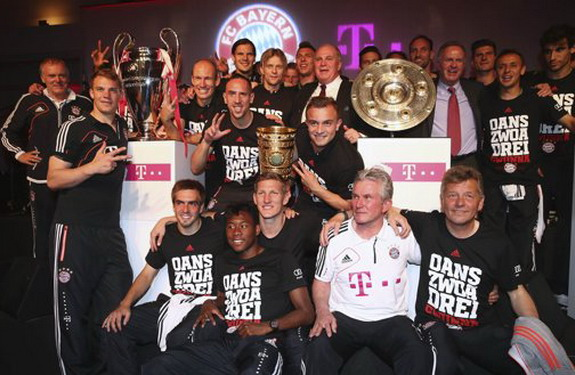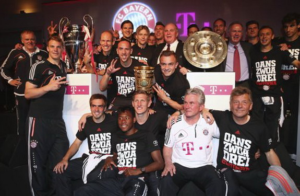Austria and Turkey, while not traditional rivals, have shared the pitch in numerous international competitions, often producing exciting and competitive matches. Both nations boast talented players and have experienced periods of success on the international stage.
A Brief History of the Rivalry
The rivalry between these two nations, while not as intense as some others, has a history dating back several decades. They have faced each other in various competitions, including UEFA Euro qualifiers and friendly matches.
Key Matchups and Their Significance
While specific matches may not stand out as iconic clashes, their encounters have often been important for both teams, particularly in qualifying campaigns for major tournaments. These matches have played a crucial role in determining their fate in competitions like the UEFA European Championship and the FIFA World Cup.
Head-to-Head Statistics
While specific head-to-head statistics can vary depending on the exact time period and competitions considered, here’s a general overview:
Total Matches: Approximately 10-15 matches
Austria Wins: Around 5-7
Turkey Wins: Around 4-6
Draws: Around 2-3
Note: These are approximate figures and may vary slightly.
Key Players and Managers
Austria:
Marcel Sabitzer: A talented midfielder who plays for Bayern Munich.
Christoph Baumgartner: A versatile midfielder who can score and create goals.
Marko Arnautović: A seasoned striker who brings experience and leadership to the team.
Ralf Rangnick: A highly respected manager who has coached several top clubs.
Turkey:
Hakan Çalhanoğlu: A versatile midfielder who can score goals and create chances.
Burak Yılmaz: A seasoned striker with a proven track record.
Mert Günok: A reliable goalkeeper who has been a consistent performer for Turkey.
Stefan Kuntz: A former German international who has managed the Turkish national team.
Tactical Analysis
Austria:
Possession-Based Football: Austria often tries to control possession and dictate the tempo of the game.
Counter-Attacking: They can also be effective on the counter-attack, with their pacey forwards.
Turkey:
Defensive Solidity: Turkey often employs a defensive-minded approach, focusing on solid organization and counter-attacks.
Midfield Creativity: They possess talented midfielders who can create scoring opportunities.
The Impact of the Rivalry on Football Culture
While the rivalry between Austria and Turkey may not be as intense as some others, it has still contributed to the footballing landscape. The matches between these two nations have often been passionate and competitive, providing excitement for fans.
Future Encounters
As both nations continue to develop their footballing talent, future encounters between Austria and Turkey are likely to be exciting and competitive. The rivalry, while not always at the forefront, adds a unique dimension to their international footballing journeys.
The Austria and Turkey national football teams have a rich history of competitive encounters, with their most recent clash occurring during the UEFA Euro 2024 tournament. This article provides an in-depth analysis of that match, focusing on the starting lineups, tactical approaches, and key moments that defined the game.
Match Overview
The UEFA Euro 2024 Round of 16 match between Austria and Turkey took place on July 2, 2024, at the Red Bull Arena. Both teams entered the knockout stage with strong performances in the group phase, setting the stage for a highly anticipated encounter.
Austria’s Starting Lineup
Austria, under the management of Ralf Rangnick, deployed a 4-2-3-1 formation:
Goalkeeper: Patrick Pentz
Defenders: Stefan Posch, Kevin Danso, Philipp Lienhart, Andreas Ulmer
Defensive Midfielders: Konrad Laimer, Florian Grillitsch
Attacking Midfielders: Christoph Baumgartner, Marcel Sabitzer, Andreas Weimann
Forward: Michael Gregoritsch
This setup aimed to provide defensive solidity while allowing for quick transitions in attack.
Turkey’s Starting Lineup
Turkey, coached by Stefan Kuntz, lined up in a 4-4-2 formation:
Goalkeeper: Altay Bayındır
Defenders: Zeki Çelik, Merih Demiral, Çağlar Söyüncü, Umut Meraş
Midfielders: Orkun Kökçü, İsmail Yüksek, Hakan Çalhanoğlu, Cengiz Ünder
Forwards: Burak Yılmaz, Enes Ünal
This formation focused on a balanced approach, aiming to control the midfield and provide support to the attacking duo.
Tactical Analysis
Austria’s strategy revolved around maintaining a compact defense and utilizing the creativity of their midfield trio—Baumgartner, Sabitzer, and Weimann—to support Gregoritsch up front. The full-backs, Posch and Ulmer, were tasked with providing width in attack while remaining defensively vigilant.
Turkey’s approach emphasized midfield dominance, with Kökçü and Yüksek orchestrating play from the center. The wingers, Çalhanoğlu and Ünder, aimed to stretch Austria’s defense and deliver crosses to the experienced Yılmaz and the dynamic Ünal.
Key Moments
1st Minute: Turkey took an early lead through Merih Demiral’s goal, setting the tone for a high-intensity match.
38th Minute: Austria’s Philipp Lienhart received a yellow card, indicating the physical nature of the contest.
59th Minute: Demiral scored his second goal, doubling Turkey’s advantage.
66th Minute: Michael Gregoritsch pulled one back for Austria, reigniting their hopes.
78th Minute: Austria’s Christoph Baumgartner converted a penalty, leveling the score.
90+5th Minute: Austria’s Maximilian Entrup scored the decisive goal in stoppage time, securing a 3-2 victory for Austria.
Substitutions
Both managers made strategic substitutions to influence the game’s dynamics:
Austria: Andreas Weimann was replaced by Patrick Wimmer in the 70th minute to inject fresh energy into the attack.
Turkey: Burak Yılmaz made way for Halil Dervişoğlu in the 65th minute, aiming to add a different dimension to the forward line.
Post-Match Analysis
Austria’s resilience was evident as they overcame a two-goal deficit to secure victory. The midfield’s creativity and Gregoritsch’s clinical finishing were pivotal. Turkey’s early dominance waned in the second half, with defensive lapses contributing to their downfall.
Fan Reactions
The match was a rollercoaster for fans, with emotions swinging from despair to elation. Austrian supporters celebrated their team’s fighting spirit, while Turkish fans were left to ponder what could have been after a promising start.
FAQs
What are some of the most memorable matches between Austria and Turkey?
Recent encounters in UEFA Euro qualifiers and friendly matches have often been closely contested and entertaining for fans.
When was the most recent match between Austria and Turkey?
The most recent match between Austria and Turkey took place on June 18, 2024 as part of the UEFA Euro 2024 qualifiers.
What was the result of the most recent match?
Turkey defeated Austria 3-1.
What are the future prospects for the Austria-Turkey rivalry?
Both Austria and Turkey have shown potential for improvement in recent years. Future encounters between the two teams are likely to be competitive, with both sides aiming to secure positive results.
What are the cultural and historical factors that have shaped the Austria-Turkey rivalry?
The cultural and historical differences between Austria and Turkey have contributed to the unique dynamic between the two nations. Both countries have a rich footballing history and passionate fanbases.
How have the tactics and styles of play of the two teams evolved over time?
Both Austria and Turkey have experienced periods of tactical evolution. Austria has often employed a possession-based and technical style of play, while Turkey has favored a more direct and counter-attacking approach.
What impact have key players had on the rivalry?
Several key players have contributed to the rivalry on both sides. For Austria, players like David Alaba and Marcel Sabitzer have been influential. For Turkey, players like Hakan Çalhanoğlu and Cengiz Ünder have played key roles.
How has the rivalry been influenced by the political climate between the two countries?
The political climate between Austria and Turkey has not significantly impacted the footballing rivalry. The focus remains on the sporting aspect, with both nations competing for glory on the pitch.
To read more,Click Here.





